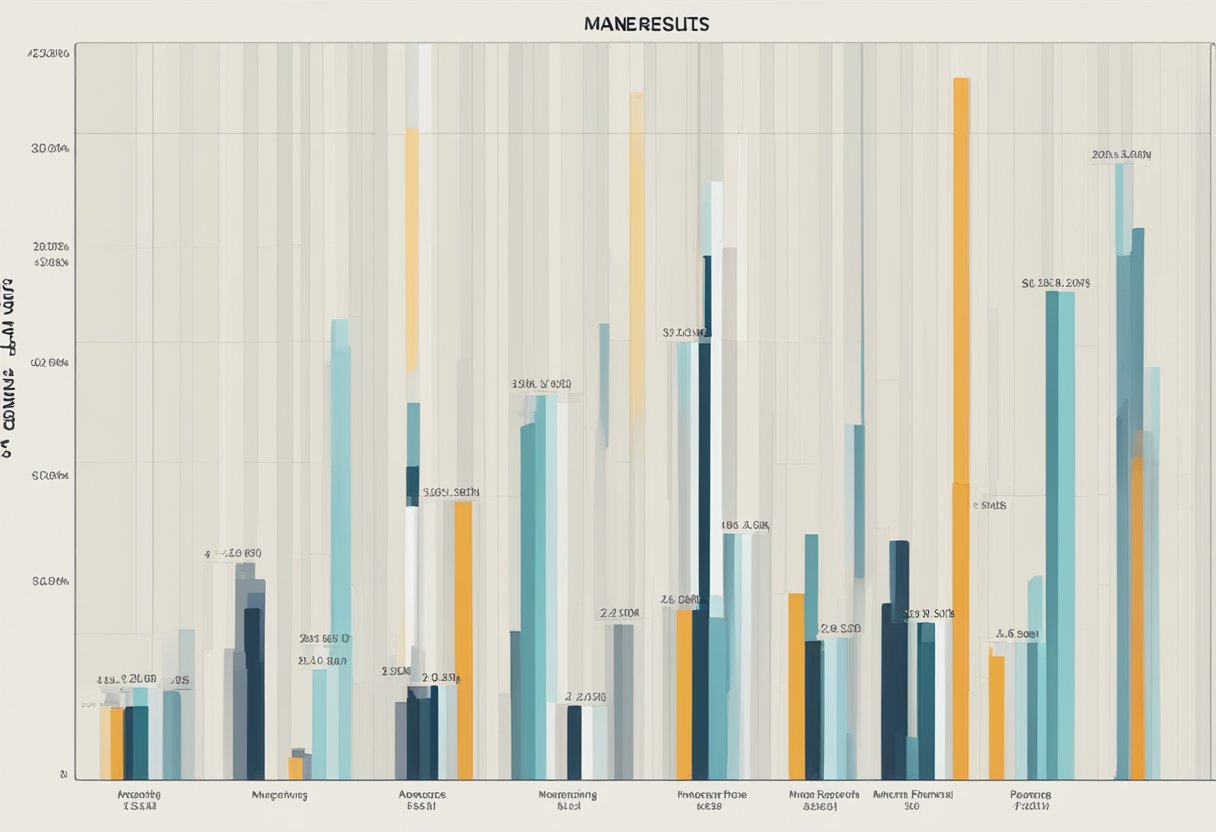MANEB JCE Results 2023; The Malawi National Examinations Board (MANEB) Junior Certificate of Education (JCE) results for 2023/2024 are highly anticipated by students, parents, and education stakeholders. The JCE is a crucial exam taken at the end of the junior secondary school cycle in Malawi, and the results have far-reaching implications for students’ academic and professional futures.

Accessing the MANEB JCE results is a straightforward process that involves visiting the official MANEB website or using the SMS service. Students can check their results by entering their examination number and selecting the examination year. The results are usually available a few weeks after the exams have been completed.
Understanding the MANEB JCE results is essential for students and parents to make informed decisions about further education and career paths. The results provide a detailed breakdown of the student’s performance in each subject, including the overall grade, percentage score, and pass/fail status. The results also include a certificate of achievement, which can be used for admission to senior secondary school or vocational training programs.
Key Takeaways
- The MANEB JCE results for 2023/2024 are highly anticipated by students, parents, and education stakeholders.
- Accessing the results is a straightforward process that involves visiting the official MANEB website or using the SMS service.
- Understanding the results is essential for making informed decisions about further education and career paths.
Overview of MANEB JCE Results
The Junior Certificate of Education (JCE) is an important exam in Malawi that is administered by the Malawi National Examinations Board (MANEB). The exam is typically taken by students who have completed four years of secondary school education. The JCE is an essential exam as it determines the eligibility of students to proceed to senior secondary school education.
Significance of JCE Results
The JCE results are significant as they determine the future of students in Malawi. The results of the exam are used to determine eligibility for senior secondary school education. Students who perform well in the JCE exam are eligible to proceed to senior secondary school education, while those who perform poorly are not eligible. The JCE results also determine the future career paths of students.
Release Date and Announcement
The MANEB JCE results for 2023/2024 were released on January 31, 2024. The results were announced by the Minister of Education, Science, and Technology, who congratulated the students who performed well in the exam. The results were also published on the MANEB website and can be accessed by students who sat for the exam.
In conclusion, the JCE results are an essential exam in Malawi, and the results determine the eligibility of students to proceed to senior secondary school education. The release of the results is a significant event in the education sector, and the results are announced by the Minister of Education, Science, and Technology.
Accessing the Results
Students who have taken the Malawi National Examinations Board (MANEB) Junior Certificate of Education (JCE) exams for the academic year 2023/2024 can access their results through various channels.
Online Results Portal
The most convenient way to check the results is through the official MANEB website. Students can access the results by visiting the MANEB website and entering their examination details such as candidate number and examination center code. The results will be displayed on the screen after entering the details. Students are advised to keep their examination details safe to avoid any inconvenience.
SMS Service
Students who are not able to access the results online can also receive their results via SMS. To receive the results via SMS, students need to send a message to a specified number with their examination details. The results will be sent back to the student’s mobile phone as a text message. The SMS service is provided by MANEB and the mobile network operators in Malawi. Students are advised to check with their mobile network operator for the charges associated with the SMS service.
School Notice Boards
Schools that have registered for the JCE exams will receive a hard copy of the results from MANEB. The schools will then display the results on their notice boards for the students to access. Students who are not able to access the results through the online portal or SMS service can visit their respective schools to check their results on the notice boards.
In conclusion, students who have taken the MANEB JCE exams for the academic year 2023/2024 can access their results through the online portal, SMS service, or school notice boards. Students are advised to keep their examination details safe and to check with their mobile network operator for the charges associated with the SMS service.
Understanding the Results
After taking the MANEB JCE exams, candidates eagerly await their results. Understanding the grading system and subject performance indicators can help candidates interpret their results and plan their next steps accordingly.
Grading System
The MANEB JCE results are graded on a scale of A to G, with A being the highest grade and G being the lowest. Candidates who score a grade of A to C are considered to have passed the exam, while those who score a grade of D to G have failed.
It is important to note that a candidate’s overall grade is determined by their performance in all subjects, not just one. Therefore, candidates should strive to perform well in all subjects in order to achieve a good overall grade.
Subject Performance Indicators
In addition to the overall grade, candidates can also view their subject performance indicators. These indicators provide information on how well a candidate performed in each subject and can help identify areas where improvement is needed.
The subject performance indicators are graded on a scale of 1 to 9, with 1 being the lowest and 9 being the highest. A score of 5 or above is considered a pass, while a score of 4 or below is a fail.
Candidates should pay close attention to their subject performance indicators and use them to identify areas where they need to improve. With this information, candidates can create a study plan to help them achieve better results in their next exams.
Overall, candidates should remember that the MANEB JCE results are just one step in their academic journey. Whether they pass or fail, there are always opportunities to improve and work towards their goals.
Post-Results Procedures
After the release of the MANEB JCE Results 2023/2024, candidates who have passed the exam will need to follow certain procedures to obtain their certificate and proceed to secondary education. This section outlines the steps that candidates need to take after the release of their results.
Certification
Candidates who have passed the JCE exam will receive a certificate from MANEB. The certificate will be issued to the candidate’s school, and the candidate will be required to collect it from the school. Candidates are advised to check with their school to confirm when the certificates will be available for collection.
Result Discrepancies and Queries
If a candidate believes that there is a discrepancy in their results, they can submit a query to MANEB. The query should be submitted through the candidate’s school, and should include the candidate’s name, index number, and the subject(s) in question. MANEB will investigate the query and provide a response to the candidate’s school.
Selection for Secondary Education
The JCE exam is used to select candidates for secondary education in Malawi. Candidates who have passed the exam will be eligible to apply for admission to a secondary school. The selection process is managed by the Ministry of Education, and candidates are advised to check with the ministry for more information on the selection process.
In conclusion, candidates who have passed the MANEB JCE exam need to follow certain procedures to obtain their certificate and proceed to secondary education. Candidates should check with their school for information on when they can collect their certificate, and should submit a query to MANEB if they believe there is a discrepancy in their results. Finally, candidates who have passed the exam will be eligible to apply for admission to a secondary school, and should check with the Ministry of Education for more information on the selection process.
Statistical Analysis
National Performance Summary
According to the Malawi National Examinations Board (MANEB), a total of 129,928 candidates sat for the Junior Certificate of Education (JCE) examinations in 2023. Out of these, 98,753 candidates passed, representing a 76.01% pass rate. This is a slight increase compared to the previous year’s pass rate of 74.2%.
When analyzing the national performance summary, it is evident that more females passed the JCE exams compared to their male counterparts. Out of the 63,513 females who sat for the exams, 50,141 passed, representing a 79% pass rate. On the other hand, out of the 66,415 males who sat for the exams, 48,612 passed, representing a 73.2% pass rate.
Subject-Specific Performance
In terms of subject-specific performance, the top-performing subjects were Mathematics, English, and Chichewa. Mathematics had a pass rate of 82.4%, English had a pass rate of 80.5%, and Chichewa had a pass rate of 79.6%. The lowest performing subjects were Agriculture and Physical Science, which had pass rates of 55.3% and 60.5%, respectively.
It is also worth noting that the number of candidates who sat for the JCE exams decreased in some subjects compared to the previous year. For instance, the number of candidates who sat for the Physical Science exam decreased from 30,342 in 2022 to 28,423 in 2023. Similarly, the number of candidates who sat for the Agriculture exam decreased from 29,219 in 2022 to 27,533 in 2023.
Overall, the statistical analysis of the MANEB JCE Results 2023/2024 indicates a positive trend in the national pass rate, with some subjects performing better than others. The data also highlights the need for further improvement in subjects such as Agriculture and Physical Science.
Implications for Education Stakeholders
Impact on Schools
The results of the MANEB JCE 2023/2024 have significant implications for schools across Malawi. Schools that performed well in the exams are likely to receive more recognition and funding, while those that performed poorly may face scrutiny and pressure to improve. This may lead to increased competition among schools to improve their performance and attract students.
In addition, schools may need to review their teaching methods and curriculum to ensure that they are adequately preparing students for the JCE exams. This may involve providing additional resources and training for teachers, as well as implementing new teaching strategies to improve student performance.
Policy and Educational Planning
The MANEB JCE results also have important implications for policy and educational planning in Malawi. The results can be used to identify areas of the education system that need improvement, such as curriculum development, teacher training, and resource allocation.
Education stakeholders, including policymakers, educators, and parents, can use the JCE results to inform their decisions and actions. For example, policymakers may use the results to allocate resources to schools and districts that need the most support. Educators may use the results to identify areas where they need to improve their teaching methods or curriculum. Parents may use the results to choose schools that have a history of strong academic performance.
Overall, the MANEB JCE results are an important tool for education stakeholders to assess the performance of the education system and make informed decisions about how to improve it. By using the results to inform policy and practice, stakeholders can work together to create a stronger, more effective education system that benefits all students in Malawi.
Also Read:
